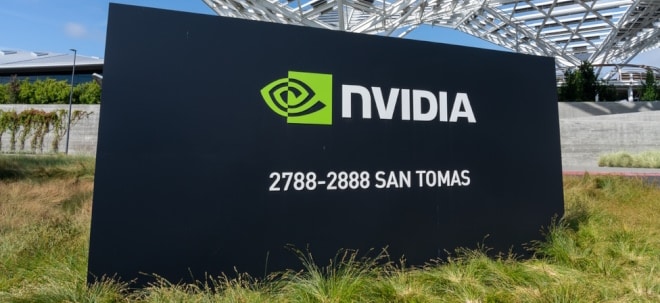Menarini Group Announces New Data on ELZONRIS® (tagraxofusp-erzs) to be Presented at the 67th American Society of Hematology Annual Meeting and Exposition
- Data spans five abstracts including two oral presentations with important findings for patients living with blastic plasmacytoid dendritic cell neoplasm (BPDCN)
- BPDCN is a highly aggressive, orphan hematologic malignancy that primarily affects skin, bone marrow, and blood
FLORENCE, Italy and NEW YORK, Nov. 24, 2025 /PRNewswire/ -- The Menarini Group ("Menarini"), a leading international pharmaceutical and diagnostics company, and Stemline Therapeutics, Inc. ("Stemline"), a wholly-owned subsidiary of the Menarini Group, focused on bringing transformational oncology treatments to cancer patients, today announced that the company will present new data related to ELZONRIS® (tagraxofusp-erzs) at the American Society of Hematology (ASH) Annual Meeting and Exposition in Orlando, December 6-9th.

The presentations include an oral session highlighting results from a triplet therapy combining tagraxofusp, azacitidine, and venetoclax, which demonstrated both efficacy (high response and bridge to transplant rates) and tolerability in individuals with blastic plasmacytoid dendritic cell neoplasm (BPDCN).
"At Menarini Stemline, our commitment to transforming the lives of people living with difficult-to-treat cancers is unwavering," said Elcin Barker Ergun, CEO of the Menarini Group. "These data demonstrate that tagraxofusp plays an important role in both monotherapy and combination settings for the treatment of BPDCN, and that it also has potential to help patients living with other aggressive hematologic malignancies, where more effective treatment options are desperately needed."
See below for full details of the Menarini Group/Stemline Therapeutics' upcoming presentations and publication:
American Society of Hematology (ASH) Annual Meeting 2025
Lead Author | Title and Publication Number | Session Name | Presentation Details |
Navarro Vicente I, et al. | Disease Presentation and Immunophenotype Characteristics in 257 Patients with
Publication Number: 218 | 618. Acute Myeloid Leukemias: | Oral Presentation
December 6, 2025 2:15 PM - 2:30 PM OCCC - W414AB
|
Lane A, et al. | Tagraxofusp, azacitidine, and venetoclax (TAG-AZA-VEN) triplet therapy shows
Publication Number: 653
| 616. Acute Myeloid Leukemias:
| Oral Presentation
December 7, 2025 5:30 PM - 5:45 PM OCCC - Chapin Theater (W320) |
Stein A, et al. | Longer Survival with Tagraxofusp versus Venetoclax in Patients with Blastic
Publication Number: 4612 | 908. Outcomes Research: | Poster Presentation
December 7, 2025 6:00 PM - 8:00 PM OCCC - West Halls B3-B4 |
Wang E, et al. | Favorable outcomes including post-transplant survival are seen independent
Publication Number: 5221
| 617. Acute Myeloid Leukemias: | Poster presentation
December 8, 2025 6:00 PM - 8:00 PM OCCC - West Halls B3-B4 |
Cho W, et al, | Tagraxofusp and Low-Intensity Chemotherapy for the Treatment of CD123-Positive
| Online-only publication |
*Denotes investigator sponsored research or collaborative research.
ELZONRIS was approved by the FDA in December 2018 for the treatment of blastic plasmacytoid dendritic cell neoplasm (BPDCN) in adult and pediatric patients two years and older, in both treatment-naïve and previously-treated populations. In January 2021, ELZONRIS was approved by the European Commission.
About BPDCN
Blastic Plasmacytoid Dendritic Cell Neoplasm (BPDCN), is a highly aggressive, orphan hematologic malignancy that primarily affects skin, bone marrow and blood. It can also affect other parts of the body, such as the lymph nodes, spleen, liver and central nervous system. Approximately 85% to 90% of patients develop skin lesions as a first sign of BPDCN. BPDCN affects all people of all races and geographic locations, with the global prevalence likely in the range of 0.4 – 0.5 per 100,000 people annually. While BPDCN affects both men and women of all ages, 75% of cases occur in men, with a median age at onset of 60-70 years. A key characteristic of BPDCN cancer cells is their high expression of a protein called CD123, which can be observed on the surface of the cells. This makes CD123 a crucial diagnostic marker as well as a prime target for precision therapies to strike the cancer directly.
About ELZONRIS® (tagraxofusp-erzs)
U.S. Indication: ELZONRIS (tagraxofusp-erzs) is a prescription medicine used to treat blastic plasmacytoid dendritic cell neoplasm (BPDCN) in adults and pediatric patients 2 years and older.
Full prescribing information for the U.S. can be found at www.elzonris.com.
IMPORTANT SAFETY INFORMATION, ELZONRIS®
Boxed WARNING: CAPILLARY LEAK SYNDROME
- Capillary Leak Syndrome (CLS) which may be life-threatening or fatal, can occur in patients receiving ELZONRIS. Monitor for signs and symptoms of CLS and take actions as recommended.
Warnings and Precautions
Capillary Leak Syndrome
Capillary leak syndrome (CLS), including life-threatening and fatal cases, has been reported among patients treated with ELZONRIS. In patients receiving ELZONRIS in clinical trials, the overall incidence of CLS was 53% (65/122), including Grade 1 or 2 in 43% (52/122) of patients, Grade 3 in 7% (8/122) of patients, Grade 4 in 1% (1/122) of patients, and four fatalities (3%). The median time to onset was 4 days (range - 1 to 46 days), and all but 5 patients experienced an event in Cycle 1.
Before initiating therapy with ELZONRIS, ensure that the patient has adequate cardiac function and serum albumin is greater than or equal to 3.2 g/dL. During treatment with ELZONRIS, monitor serum albumin levels prior to the initiation of each dose of ELZONRIS and as indicated clinically thereafter, and assess patients for other signs or symptoms of CLS, including weight gain, new onset or worsening edema, including pulmonary edema, hypotension or hemodynamic instability.
Hypersensitivity Reactions
ELZONRIS can cause severe hypersensitivity reactions. In patients receiving ELZONRIS in clinical trials, hypersensitivity reactions were reported in 43% (53/122) of patients treated with ELZONRIS and were Grade ≥ 3 in 7% (9/122). Manifestations of hypersensitivity reported in ≥ 5% of patients include rash, pruritus, and stomatitis. Monitor patients for hypersensitivity reactions during treatment with ELZONRIS. Interrupt ELZONRIS infusion and provide supportive care as needed if a hypersensitivity reaction should occur.
Hepatotoxicity
Treatment with ELZONRIS was associated with elevations in liver enzymes. In patients receiving ELZONRIS in clinical trials, elevations in ALT occurred in 79% (96/122) and elevations in AST occurred in 76% (93/122). Grade 3 ALT elevations were reported in 26% (32/122) of patients. Grade 3 AST elevations were reported in 30% (36/122) and Grade 4 AST elevations were reported in 3% (4/122) of patients. Elevated liver enzymes occurred in the majority of patients in Cycle 1 and were reversible following dose interruption.
Monitor alanine aminotransferase (ALT) and aspartate aminotransferase (AST) prior to each infusion with ELZONRIS. Withhold ELZONRIS temporarily if the transaminases rise to greater than 5 times the upper limit of normal and resume treatment upon normalization or when resolved.
Adverse Reactions
Most common adverse reactions (incidence ≥ 30%) are capillary leak syndrome, nausea, fatigue, pyrexia, peripheral edema, and weight increase. Most common laboratory abnormalities (incidence ≥ 50%) are decreases in albumin, platelets, hemoglobin, calcium, and sodium, and increases in glucose, ALT and AST.
Please see full Prescribing Information, including Boxed WARNING.
To report SUSPECTED ADVERSE REACTIONS, contact Stemline Therapeutics, Inc. at 1-877-332-7961 or contact the FDA at 1-800-FDA-1088 or www.fda.gov/medwatch.
About The Menarini Group
The Menarini Group is a leading international pharmaceutical and diagnostics company, with a turnover of $4.7 billion and over 17,000 employees. Menarini is focused on therapeutic areas with high unmet needs with products for cardiology, oncology, pneumology, gastroenterology, infectious diseases, diabetology, inflammation, and analgesia. With 18 production sites and 9 Research and Development centers, Menarini's products are available in 140 countries worldwide. For further information, please visit www.menarini.com.
About Stemline Therapeutics Inc.
Stemline Therapeutics, Inc. ("Stemline"), a wholly-owned subsidiary of the Menarini Group, is a commercial-stage biopharmaceutical company focused on bringing transformational oncology treatments to patients. Stemline commercializes elacestrant, an oral endocrine therapy indicated for the treatment of postmenopausal women or adult men with estrogen receptor (ER)-positive, human epidermal growth factor receptor 2 (HER2)-negative, ESR1-mutated advanced or metastatic breast cancer with disease progression following at least one line of endocrine therapy, in the U.S., Europe, and other global regions. Stemline also commercializes tagraxofusp-erzs, a novel targeted therapy directed to CD123, for patients with blastic plasmacytoid dendritic cell neoplasm (BPDCN), an aggressive hematologic cancer, in the United States, Europe, and other global regions. In addition, Stemline commercializes selinexor, an XPO1 inhibitor for multiple myeloma, in Europe. The company is also conducting multiple label-expansion studies with elacestrant and tagraxofusp in breast and hematologic cancer indications, respectively, and has an extensive clinical pipeline of additional drug candidates in various stages of development for a host of solid and hematologic cancers.
Logo: https://mma.prnewswire.com/media/2296569/Menarini_Industrie_Farmaceutiche_Riunite_Logo.jpg

